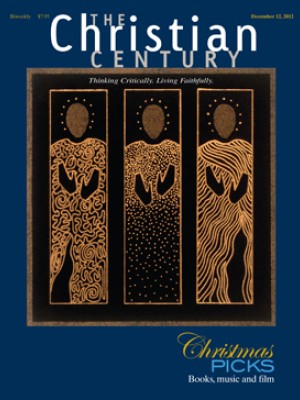Science fiction
Doctor Who: Shada: The Lost Adventure by Douglas Adams, by Gareth Roberts. Drawn from one of Douglas Adams’s never-completed and never-aired episodes of Doctor Who, this story focuses on a megalomaniacal moral theologian. For anyone familiar with the show, it will be no spoiler to say that the entire universe is in danger as a result—and that the doctor saves the day. Whether you are a Doctor Who fan or a Douglas Adams fan, you will appreciate this long-lost story.
Existence, by David Brin. Brin explores the social and political impact of technologies that erode privacy and foster interactions that live up to the term global village. Against this background, humanity has its “first contact” with an artifact produced by a nonhuman source. The drama raises questions about whether species and civilizations are doomed to be short-lived, and if so, what it would take for humanity to beat the odds. Religious traditions and motifs are woven into the exploration.
Read our latest issue or browse back issues.
Redshirts: A Novel with Three Codas, by John Scalzi. The title of this homage to science-fiction television refers to those crimson-clad security guards in Star Trek who never seem to survive their first trip to an alien world. A few minor crewmen on a starship bearing more than a passing resemblance to the Enterprise begin to suspect that there’s a conspiracy behind the demise of their lower-ranking colleagues. The novel begins as a comedy but becomes a moving exploration of what it means to write, read, watch and care about fictional characters. No one is expendable, the novel argues—even extras have a story of their own.
American Science Fiction: Nine Classic Novels of the 1950s, edited by Gary K. Wolfe. The Library of America’s deluxe treatment of nine of the finest SF novels of the 1950s places these gems firmly in the canon of American literature. One of the best novels in the collection is James Blish’s A Case of Conscience, which puts a Jesuit priest at the center of a thorny theological dilemma involving an alien species. Also notable are Alfred Bester’s mind-bending The Stars My Destination, Frederik Pohl and C. M. Kornbluth’s sharply satirical The Space Merchants and Theodore Sturgeon’s moving More Than Human. It’s a perfect overview of one of the richest and most vibrant periods in science fiction.
At the Mouth of the River of Bees, by Kij Johnson. Johnson’s first collection contains stories on the boundary of science fiction and fantasy. These exquisitely subtle and powerful tales are some of the finest from over two decades of Johnson’s career—and include winners of the Nebula and Sturgeon Awards. Most of the stories involve animals—”The Cat Who Walked a Thousand Miles,” “Ponies,” “Fox Magic”—but their real strength comes from their exploration of what it means to be human.
Triggers, by Robert J. Sawyer. Sawyer’s novel spans several genres: political thriller, murder mystery and science fiction. After an assassination attempt, a president is taken to a hospital where an experimental psychological treatment is being tested. When the experiment goes awry, those inside the hospital start to read each other’s minds—meaning that someone has access to the president’s memories. Along with the political intrigue, the novel is full of philosophical speculation on racism, the nature of the mind and the morality of warfare.












